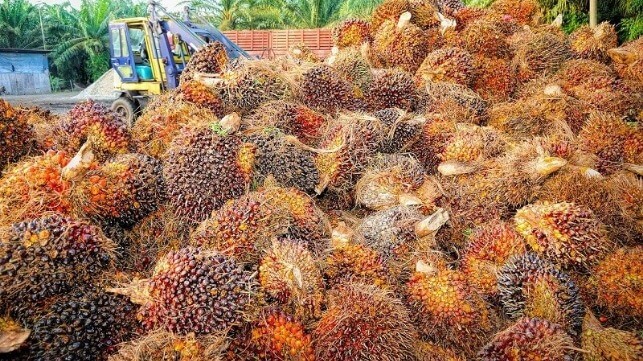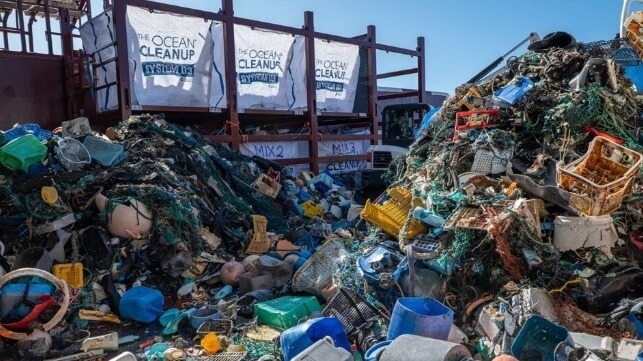Shipping Companies and NGOs Warn of Harmful Consequences of Biofuels

The battle lines are being drawn for the next round of alternative fuel debate and the steps that will contribute to the IMO’s emission reduction goals. A group of NGOs, including the well-known T & E (European Federation for Transport and Environment), joined with major shipping lines including Hapag-Lloyd calling for the IMO to exclude biofuels from its list of green alternatives to traditional fossil fuels. They argue it would be unsustainable and could produce more harm than good.
A study commissioned by T&E and conducted by Cerulogy reports that nearly a third of global shipping could run on biofuel in 2030 up from less than 1 percent today. They point out that while well intention in its original concept to reuse waste oil, the price advantage of biofuels could result in unsustainable demand.
The report concludes that waste biofuels will likely be able to cover just a small portion of shipping’s projected biofuel demand as their availability is limited. They highlight that major carriers including MSC Mediterranean Shipping Company and CMA CGM have invested in the use of biofuels derived from used cooking oil and animal fats. However, with the supplies limited, they conclude that just 2.5 to 3 percent of shipping could run out of used cooking oil and animal fat biofuels by 2030.
The vast majority (60 percent) of biofuels they argue will have to come from palm and soy. This they theorize would put pressure on vegetable oil prices. They point to a doubling of the use of palm oil biofuels in the EU between 2010 and 2020 following the introduction of a law promoting biofuels in cars.
Countries such as France, Norway, and the Netherlands, T&E notes, have already restricted or stopped using palm and soy biofuels domestically, while the EU itself has excluded the use of food crops from its flagship shipping fuels regulation (FuelEU). There was a large debate on the competition for food supplies if the oils were also to be used as biofuels.
“As things stand the IMO risks doing more harm than good. Palm and soy biofuels are devastating for the climate and they take up vast amounts of land,” argues Constance Dijkstra, shipping manager at T&E. “Instead of creating new problems, the global shipping community must focus on green fuels made from hydrogen. Burning crops is never the answer.”
The report speculates that the fuel-intensive shipping industry would need vast amounts of farmland, possibly 34 million hectares in 2030 - the total area of Germany - to produce enough crops to meet the increased biofuel demand from the shipping industry. T&E argues this could have serious impacts on food supplies. Land that could be used for farming would need to be converted to growing biofuel crops while burning vegetable oil in ships will deprive supermarkets of a staple food item.
This poses a serious climate problem, warns T&E, as palm and soy are responsible for two to three times more carbon emissions than even the dirtiest shipping fuels today, once deforestation and land clearance are taken into account.
The release of the report coincides with the start of the Intersessional Working Group on Reduction of GHG Emissions from Ships (ISWG-GHG) in advance of the upcoming IMO Marine Environment Protection Committee (MEPC) meeting in April. The April session is a key step in designating the tactics the IMO will take to meet its goals for cutting shipping emissions.
AURELIA Partners with The Ocean Cleanup to Explore Sustainable Propulsion

[By: AURELIA]
AURELIA, a leader in sustainable maritime solutions, is proud to announce its collaboration with The Ocean Cleanup to conduct a feasibility study for innovative propulsion systems. This partnership aims to explore and develop technologies that will support The Ocean Cleanup’s mission to remove plastic pollution from the Great Pacific Garbage Patch (GPGP) while leveraging the latest in sustainable maritime propulsion technologies.
Raffaele Frontera, CEO of AURELIA, expressed his enthusiasm for the partnership: “At AURELIA, we believe in the power of collaboration to solve the world’s most pressing challenges. Working alongside The Ocean Cleanup is an incredible opportunity to contribute with our expertise in sustainable ship design to a mission that aligns so closely with our values. Together, we aim to redefine what’s possible for clean and efficient maritime operations.”
The feasibility study will focus on identifying and analyzing propulsion systems that align with The Ocean Cleanup’s operational needs while adhering to the highest standards of environmental sustainability. The ultimate goal is to provide solutions that optimize performance and reduce the carbon footprint of vessels involved in this vital mission.
Mathijs Campman, Head of Offshore Project at The Ocean Cleanup, added: “In order for us to achieve our mission, we are now seeking support from AURELIA to secure new vessels for our extraction operations in the GPGP, which will enable us to utilise greater deck space and achieve higher fuel efficiency.’’
“As part of the process, we are currently carrying out a feasibility study with AURELIA, a leader in sustainable maritime solutions, to develop technologies to support our ambitious plans.”
The products and services herein described in this press release are not endorsed by The Maritime Executive.
No comments:
Post a Comment